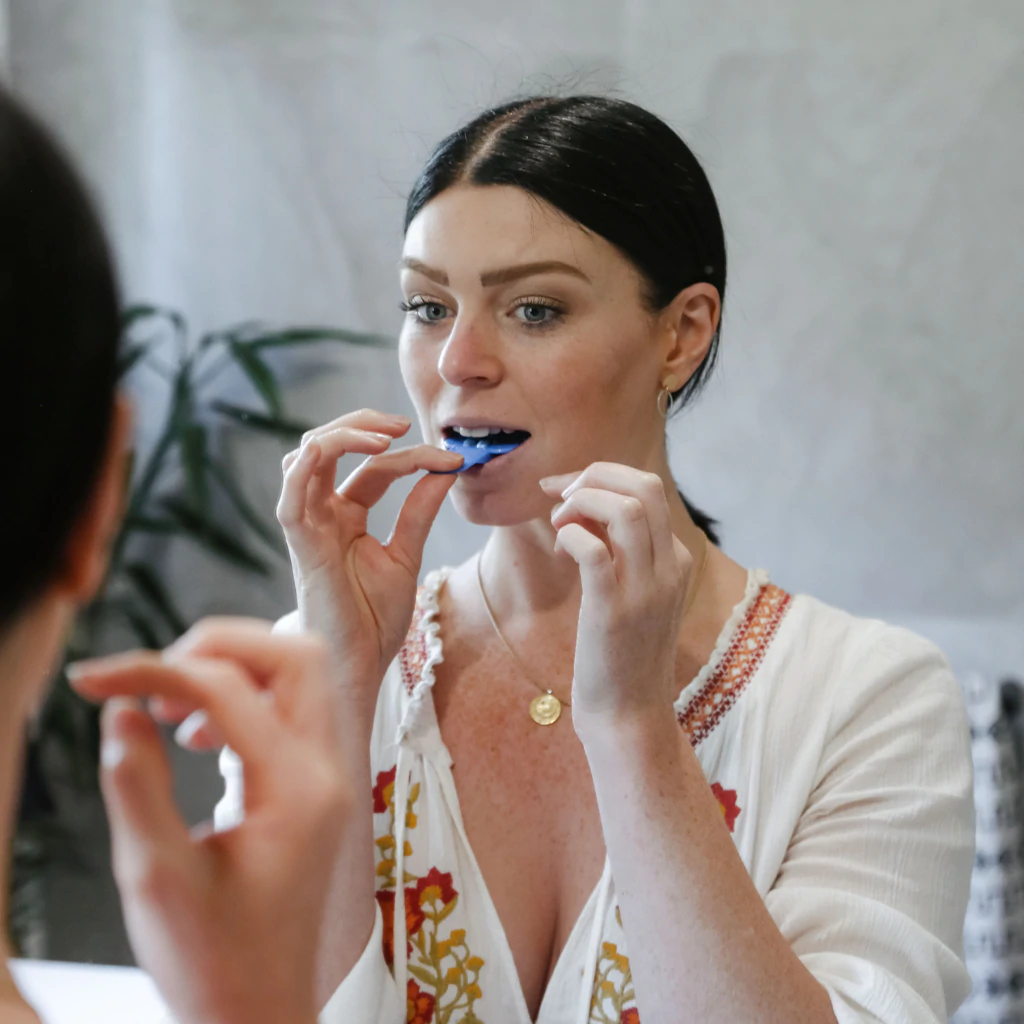Teeth grinding causes a lot of dental problems if you are part of the 25 percent of the population that experiences it.
Most people with bruxism teeth grinding do not experience any immediate symptoms, but they do show wear and tear on their teeth and gums that indicate the problem.
Only 5 percent display painful symptoms, ranging from extreme headaches to ear, tooth or jaw pain. Many dentists recommend night guards for grinding your teeth. Identification
If you grind your teeth at night, you may wake up with painful teeth or jaws. If there is no pain to alert you, your spouse may tell you to grind because the noise keeps you awake or your dentist may notice signs during a dental exam.
Doctors do not agree on the origin of bruxism. Several theories link it to misalignment of the jaws, genetics, allergies or ingestion of caffeine, tobacco or amphetamines. Night guards avoid much of the pressure on the teeth.
Meaning
Watch out for the biggest damage. Teeth grinding often occurs in children. Sometimes bruxism goes away by the time children reach the age of 10, other times it gets worse.
The alignment of permanent teeth makes the difference. Those with severe malocclusion seem to be candidates for the problem. They do show wear and tear on their teeth and gums that indicate the problem.
This most often occurs at night, because it is a subconscious neuromuscular disorder. Braces often prevent teeth grinding later in life.
Table of Contents
What is a night guard for teeth?
A night guard, also known as a teeth Night Guard , is a product made of plastic that covers all or part of the teeth. It is worn through the night to prevent you from grinding and clinching your teeth while you are sleeping.
The main aim of a nightguard is to separate your top and bottom teeth so they don’t damage each other from the pressure of grinding or clenching.
Doctors do not agree on the origin of bruxism. Several theories link it to misalignment of the jaws, genetics, allergies or ingestion of caffeine, tobacco or amphetamines. Night guards avoid much of the pressure on the teeth.
How to clean a night guard to keep it safe and sound?
You can brush your night guard by using a soft toothbrush and toothpaste and then rinse it with warm water. Your dentist may also recommend you an antimicrobial solution in which you can soak your night guard to remove bacteria.
You need to cover your night guard in its protective case (which you should also clean) during the day, but you should make sure it has ventilation so it can dry and prevent any growth of bacteria.
Are night guards bad for your teeth?
Are night guards bad for your teeth? The answer is definitely NO. Adjusting to night guards takes time, and while it might seem difficult and frustrating at times, it is important not to give up.
Continue wearing your night guard every night and within a few days, you should find you no longer experience that initial discomfort. If this discomfort continues or gets worse, talk with your dentist and an adjustment may be necessary.
You can brush your night guard by using a soft toothbrush and toothpaste and then rinse it with warm water.
Eventually, wearing your night guard will become normal. You will see previous symptoms like morning headaches and jaw pain disappear. Going a night without your night guard will seem unnatural and you will see symptoms return once again.
Do I need to use the Night teeth guard forever?
The night teeth guard does not have to be worn forever. Some patients express their daily stress by brushing their teeth during sleep. This can be exacerbated during the more stressful periods of life, and as a result, less crunches can occur during the less stressful periods. Many patients reassure a properly fitted custom-made sprint and enjoy using it as a long-term precaution.
The key is to achieve the right level of flexibility and cushioning, which can vary from patient to patient. It is important that all have regular dental examinations by the same dentist who can track their dental history and habits. In this case, the damage can be dealt with quickly and precautions can be taken to prevent further tooth damage.
How do I know if my nightwear fits properly?
Custom-made nightguards are made from your tooth mold, so a mouthguard is perfect for you. This keeps the night guard in place all night and keeps your teeth in place. Your nightguard may seem strange at first, but this is what you expect.
- The custom night guard should feel right. The night guard may feel snug when first worn, but it should be firmly attached to your teeth so that it is not secured by your chin. It fits snugly and keeps the custom night guard in place so it won’t fall off at night. If your custom mouthguard does not fit or fall off your teeth, it is out of fit or damaged and you should consult your dentist for repair.
- Do not touch your gums. The Nightguard does not fit like a retainer or Invisalign®. Custom night guards are designed to be chewy, so they don’t have to be from gum to gum. Your nightguard reaches only about half of your teeth.
- The mating surface of the mouthguard may be smooth or uneven. The area of the mouthguard that touches the teeth may be dented or flattened, depending on how hard you brush your teeth. A custom made mouthguard can be a with a notch creates space for the ‘s teeth to align and allows you to rest normally (called occlusion). These custom indent night sprints are designed to prevent brushing your teeth by providing a place for your teeth to rest naturally.
- If you’re a person who grinds your teeth a lot or with great force, these types of custom night guards won’t stop you from grinding, and you’re trying to grind against the resistance created by the dents in the morning. Your jaw may hurt.












